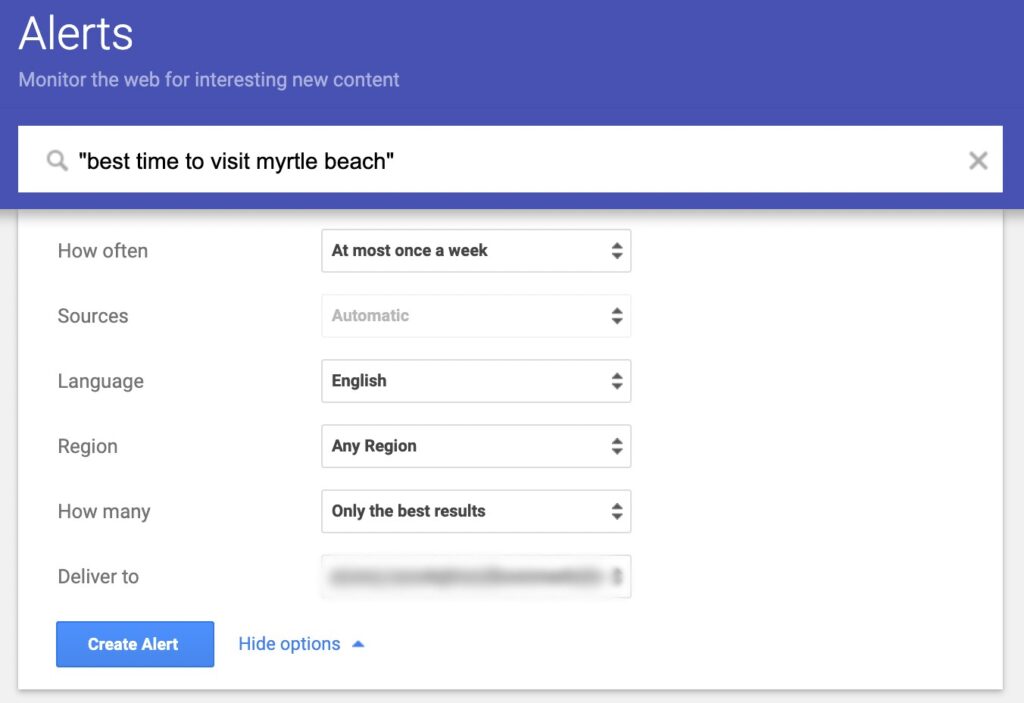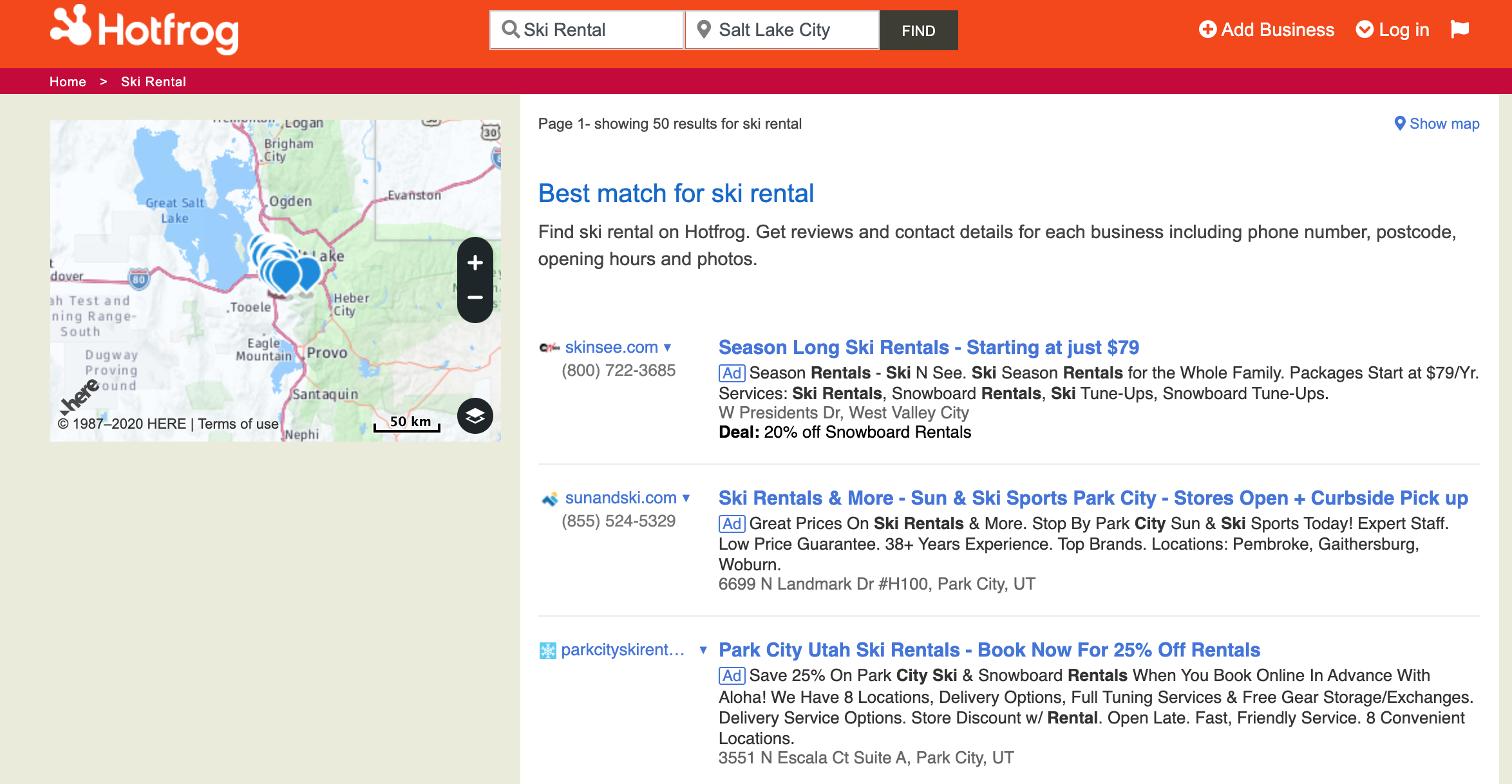10 Effective Link Building Strategies for Hotels
by Jeremy Razook
If you want to boost your hotel SEO, you’ll want to incorporate these link strategies for hotels into your digital marketing repertoire.
If you’re a hotelier looking to take the next step with their hotel marketing skills, link building can be a rewarding opportunity.
This article is meant to show you strategies that could lead to link building opportunities. It is up to you to figure out the best way to create relationships and eventually turn those relationships into new opportunities.
Let’s get started.
1. Create Link-Worthy Content
Crafting valuable content is the basis of effective link building. Develop articles, infographics, or videos that are not only relevant to your hotel but also offer unique insights about your destination, making others eager to link back to your site.
First, you’ll need to do some keyword research to find what people are interested in. Using tools like Moz Keyword Explorer, Semrush Keyword Magic Tool, or even Google Keyword Planner are good places to start for finding search volumes. Next, write some kick-ass content that’s so good that people will want to share it or bookmark it. Adding other media elements like videos, infographics, and images are creative ways to further boost your content’s value.
Once you publish new content on your website, your next step should be to promote it on your social media channels and in your email newsletters. This will help get your content in front of more people faster.
2. Monitor Brand Mentions
Brand monitoring is the process of tracking brand mentions from sources across the web. When your brand receives a mention, it’s up to you to determine whether the source is or isn’t linking back to your website. If not, then it’s an opportunity for you to reach out to those sources to turn those mentions into backlinks. A powerful tool for tracking brand mentions is Google Alerts.
To get started with Google Alerts:
- Go to www.google.com/alerts.
- Enter your brand name.
- Use quotations around the query for an exact match.
- Choose language, region, how often and how many results you want.
- Click Create Alert.
Now you’ll receive alerts from sources across the web that mention your hotel.
For web mentions, especially blog posts, you’ll want to try to find contact information from the author and thank them for including your brand and request a link. Hunter.io is a useful tool for finding that contact information. No one likes a boring link request so let your personality shine in your outreach email and don’t be afraid to use a little flattery.
3. Monitor Topics Relevant to Your Business
Google Alerts is also one of the best ways to discover who is mentioning topics relevant to your business.
Let’s take a look at an example.
Say you have an article that highlights “best time to visit myrtle beach”.
- Create a Google Alert for “best time to visit myrtle beach”.
- Use quotations around the query if you want an exact match.
- Choose language, region, how often and how many results you want.


When a Google Alert comes to your inbox you can reach out to the author and explain that you have some supporting content on The Best Time To Visit Myrtle Beach, and suggest they link to it.
You may need to give them a reason to link to your content. Maybe you have some infographics or images in your content covering topics such as weather patterns, specific events happening during certain times of the year, or occupancy statistics that their content does not cover. You will need to figure out a reason why your content would be a good support piece.
This is a very basic example of finding related content, but you can replace “The Best Time To Visit Myrtle Beach” with actual content you have created. The point here is to find other forms of content that are very similar to your content, and offer your content as an addition to what they already have.
ProTip: Google Alerts are also great for content creation ideas. Seeing what others are saying about your valuable keywords can spark ideas to create your own content around that topic.
4. Broken Link Building
By identifying broken links on other websites, you can reach out to the site owners/authors and suggest your relevant content as a replacement, providing a mutually beneficial solution.
A good place to start is by analyzing one of your competitor’s using Moz’s Top Pages tool.
Once you’ve analyzed your competitor’s website, sort by ‘4xx’ status code, and sort by # of external links. Now you have a list of your competitor’s broken pages with backlinks that you can swoop in to reclaim for yourself. Just be sure your content matches the context of the broken link before reaching out.

Another approach would be to install the Check My Links extension to your web browser. Now when you find a source that you want to get a link from, just use Check My Links to find any broken links on those pages that are topically relevant to your content.
Pro tip: Another way to use broken backlink building is for retaining your current backlinks. This is helpful for your own site by getting ahead of competitors that may use a similar strategy above or before the author removes your link entirely. Just use Moz’s Top Pages report to identify those pages and get to fixing!
5. Lost Link Building
Lost link building is the process of analyzing your own website’s lost links and understanding why they occurred.
Both Moz and Semrush offer Lost & Found reports that make it easy to identify lost links. From here, you’ll need to assess what link was lost and why it was removed. Does the content no longer exist? Did the other website replace it with a different source? Reach out to the source with a friendly message to address any issues and present new, valuable content that might encourage them to re-add a link.
6. Vendor Partnerships
This one is missed by so many hotel marketers and it could quite possibly be the easiest way to gain relevant, high quality backlinks to your hotel’s website.
To start, you’ll need to gather a list of vendors from both the operations and the marketing sides of the business.
Operations vendors may include housekeeping services, security firms, telephone systems, valet services, food & beverage, cleaning supply companies, in-room amenities (soap/shampoo/coffee/etc.) and the list goes on and on.
The first step is to check their websites to see if they are listing any other hotels or businesses that they are servicing. If they are, you simply ask to be included and request a link. If they are not, you can request they create a page like that and link to your hotel website. Again, don’t be afraid to use a little flattery and tell them how much you appreciate what they do for your hotel. It can go a long way.
Marketing vendors may include PMS, CRM, marketing agencies, booking engines, radio advertisements, billboards, print, and once again, the list goes on and on. These vendors tend to be a little more savvy and may want something in return for the link you’re requesting. You can create your very own case study about how that vendor improved your revenue/occupancy/OTA reliance/etc. Sometimes a simple testimonial is sufficient. If you do this and present it to your vendor, you have a good chance of getting a link back to your hotel website.
7. Directories and Resource Pages
Submit your hotel website to relevant directories and resource pages. This not only helps with building backlinks but also enhances your local and industry-specific visibility.
But submitting your site to a directory isn’t the only way to use them. You can also use directories to find related sites.
Identify major directories like Hotfrog and find other sites that are listed in your target category. You can also search for directories that focus on your niche or niches you’re trying to reach. These directories will give you a list of sites that fall under a particular category. For example, if you’re looking for Ski Rental businesses near your hotel, search for “Ski Rental” and your city.

Once you have a list of related sites, check them out and figure out how you could possibly earn a link from them. You could ask them to link to a piece of your content that could be beneficial to their visitors, or you could even start a partnership with a nearby business.
8. Use Search Operators
You can use search operators like “inurl:keywords” to find URLs that contain your target keywords, or use “intext:keywords” to find sites that have your keyword in the document text. More info on how to use search operators.
By using search operators you should be able identify pages that are similar to yours or at least focus on a related topic. You may have some additional content to offer, content they could link to, or you could possibly even write for their site if they allow it. It’s really up to you to figure out the best way to get a link from a related site.
9. Competitor Links
The idea here is to find sites that are linking to two or more of your competitors but not you. There are many tools out there like Moz’s Link Intersect Tool that will show which sites are sending links to your competitors.
For instance, Moz’s Link Intersect Tool lets you add up to five competitors. You’ll then get a list of websites that link to two or more of your competitor sites (or intersect). Export the CSV and now you’ve got a list of link building opportunities.
ProTip: After you export a list of websites, you’ll then need to determine where those links are coming from. Is it a list of related sites? Did your competitors blog for that site? After you figure out how they got their links, pursue the same path and get a link for yourself.
10. HARO (Help A Reporter Out)
HARO is similar to Google Alerts in that all you need to do is set your preferences and you’ll start receiving alerts from reporters that need sources for their articles.
To get started, you can set up an account here. During the set up process you’ll identify yourself as a subject matter expert and select ‘Travel’ as your topic. Once you find a query that matches what your hotel has to offer, you can pitch them why your hotel or insight should be featured in the reporter’s article.

As an example, here’s a query for a reporter with Forbes looking for hotels that sell iconic treats. If your hotel fits the bill, then that’s a massive opportunity to get a link!
Need a helping hand? Find out how TravelBoom can help you with your hotel SEO endeavors.